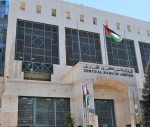You are here
A sustainable economy for the Arab world
Jun 13,2017 - Last updated at Jun 13,2017
In recent decades, millions of people in the Arab world have been lifted out of extreme poverty. But progress is now at risk of slowing, or even reversing, owing to a vicious circle of economic failure and violent disorder.
To prevent such an outcome, Arab countries must move fast to build a more sustainable economy, underpinned by greater private-sector creativity and vitality, improved public services, and the creation of regional and global public goods.
The first step towards achieving this is to recognise the scale and nature of the potential barriers to success.
Arab countries today are faced with slow overall GDP growth and tightening fiscal constraints.
Disparities in access to education, training and health care — partly a reflection of those fiscal constraints — exacerbate already rising inequality.
As we have seen in the region, such circumstances can fuel political polarisation and violent conflict, with the concomitant displacement, loss of life, destruction of infrastructure and staggering economic costs.
While economic development is no guarantor of peace, development failures do often contribute to extremism and violence, as popular anger combines with a loss of institutional legitimacy.
The existence of nearby conflicts, which can have destabilising spillover effects, heightens the risk of unrest. Technological innovation can be part of the solution for Arab economies; but the accompanying disruption of markets and livelihoods raises its own challenges.
Equally difficult to manage are risks like climate change and pandemics, which transcend borders and thus cannot be addressed by any single country.
Overcoming these challenges will not be easy.
The key to success will be smart cooperation: between the public and private sectors; between government and civil society; among countries; and between countries and international organisations.
One of those international organisations is the World Bank Group, which engages with countries to help protect the poor and vulnerable, improve resilience to refugee and migration shocks, and ensure inclusive and accountable service delivery.
We also work to strengthen the private sector, so that it can create jobs and opportunities for young people throughout the Arab world.
And we promote other kinds of cooperation, particularly regional cooperation on shared public goods and in sectors like education, water, energy and climate change.
A major goal of cooperation must also be to raise funding. Official development assistance (ODA), which last year stood at $142 billion, will never be sufficient to meet the region’s extraordinary financing needs, even if it is combined with government resources.
To put this into context, ODA for 2015 amounted to just one-third of Germany’s annual health-care bill.
The United Nations trade arm, UNCTAD, estimates that, to reach the Sustainable Development Goals (SDGs), the world will have to close a $2.5 trillion gap — annually.
To achieve this, we must use innovative mechanisms to leverage and mobilise global funds, especially from the private sector.
Fortunately, the private sector has trillions of dollars that it can shift towards the effort to build a more sustainable economy and, specifically, to achieve the SDGs.
But it needs encouragement, which the World Bank Group has attempted to provide, using concessional financing, investment guarantees, and matching investments.
We have also worked to encourage countries to improve the policy and regulatory environment for development and growth, thereby becoming more attractive destinations for private-sector resources.
But more must be done to encourage the private sector to invest in sustainable development. For starters, businesses need purpose. As a recent report by Deloitte points out, companies should be able to articulate a clear purpose that is connected to a wider social, environmental, or even economic goal.
That purpose can act as a compass for the business, influencing its organisational culture and values, and guiding stakeholders’ individual and collective behaviour.
Of course, a sense of purpose alone will not drive the private sector to shift investment towards sustainability.
The Business and Sustainable Development Commission (BSDC) has reported that investments in the SDGs bring enormous returns, including new opportunities, massive efficiency gains, impetus for innovation and improved reputations.
Once companies recognise these benefits and decide to adopt a purpose-driven approach, they need help monitoring and reporting outcomes.
Specifically, they need a transparent framework that enables them more easily to share information about progress on their long-term economic, social, and environmental objectives.
There are efforts underway to create such a framework, but much more needs to be done to create the right incentives for businesses to participate.
The ranks of businesses supporting the transition to a sustainable economy are growing.
But to complete that transition, particularly in Arab countries, many more companies and other private-sector entities will need to step up.
Of course, their pledges must be reflected and reinforced by commitments from governments, multilateral institutions, and civil society.
The road ahead is fraught with difficulties, but the Arab world has overcome similarly daunting challenges in the past. Now as much as ever, the region has the people, resources, and opportunity to thrive.
The writer is the World Bank Group’s senior vice president for the 2030 Development Agenda, United Nations Relations, and Partnerships, and is a former minister of investment of Egypt. ©Project Syndicate, 2017. www.project-syndicate.org











